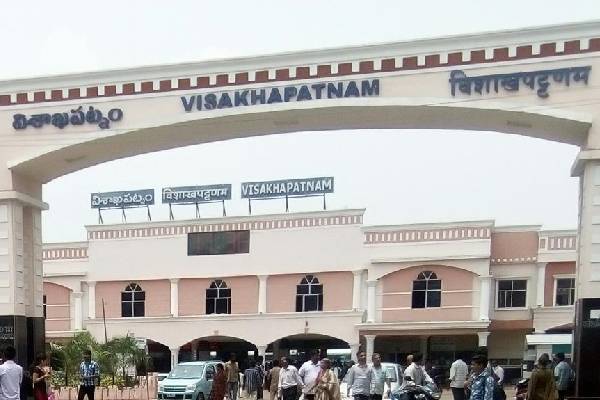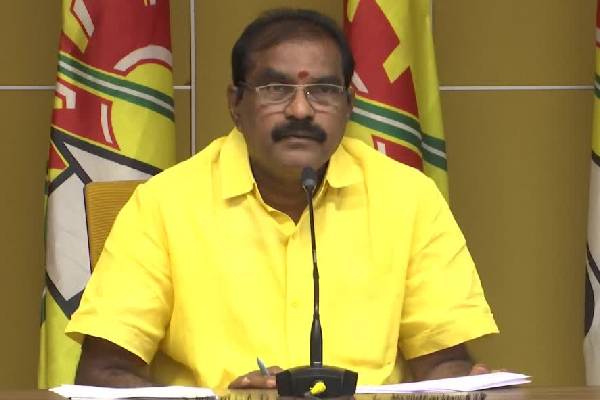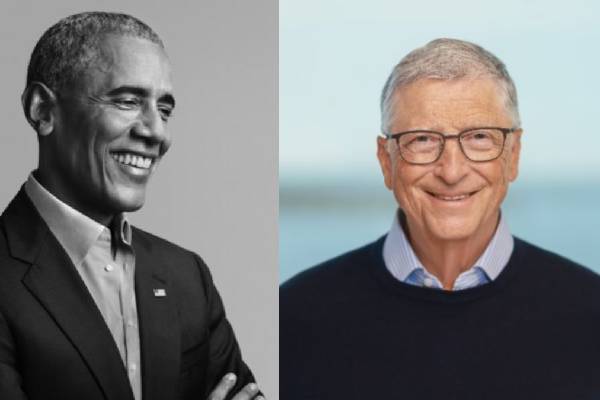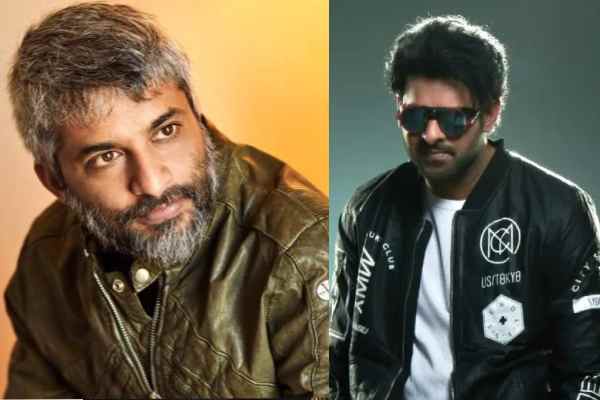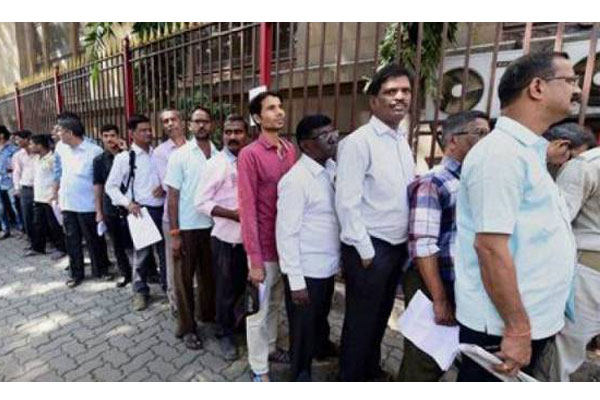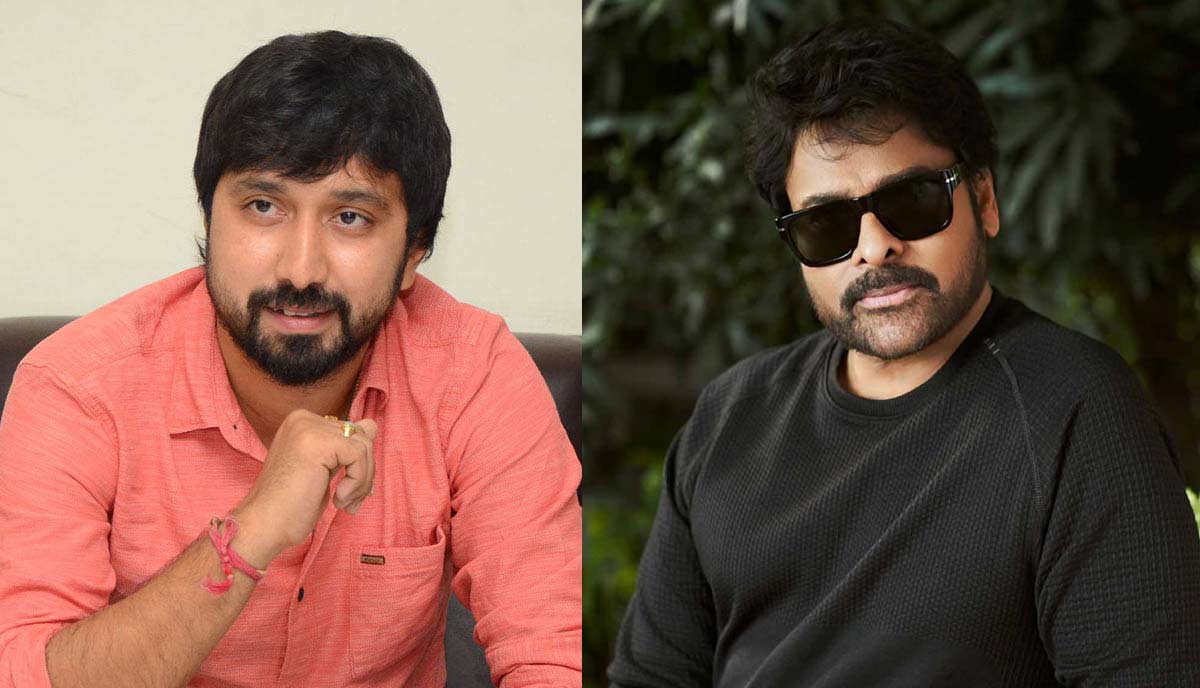A chill has set in at 10 pm when the first customers start gathering outside a small SBI branch in Geeta Colony in east Delhi with the aim of drawing cash when it opens in the morning.
Welcome to India’s new banking hours — post demonetisation.
“I will spend the night here,” Surender Sahni, who deals in second hand motorcycles, told IANS as he sat down on the pavement outside the bank branch and covered his face with a shawl to beat the chill.
“I joined the bank queue two days back two hours after midnight. But by then there were already 150 people ahead of me,” he said.
Sahni is delighted he has now taken the first spot in a queue that will get longer and longer through the night so that by the time the bank opens at 10 a.m., there will be a mob of people hungry to exchange the old 500 and 1,000 rupee notes or to simply draw money from their saving accounts.
Within minutes, more people trickle in, armed with blankets and shawls, also ready to spend the night under the open sky — because they need money which is constantly running short all across India.
Rahul, one of the next two men who come, tells Sahni to keep their place in the queue safe so that they can go to a dhaba for dinner.
After half hour, three more arrive. And then more…
Akbar, a resident of Rani Garden, is desperate to exchange his demonetised money for fresh legal tender. Signs of fatigue are writ large on his face.
He told IANS there was nothing to eat at home as they were without money. “No food was prepared at our house tonight,” he said.
His wife joined the queue during the day twice but the bank ran out of cash before her turn arrived.
Asked about Prime Minister Narendra Modi’s decision to ban old Rs 500 and Rs 1,000 notes, Akbar said: “We support him but he should have made proper arrangements before implementing this. “Why should we poor suffer every time? Why are all the bitter pills meant for us?”
The SBI branch at Geeta Colony is no exception to night queues. This has now become a common sight all across the Indian capital — and in numerous places across the country.
When this correspondent visited a Punjab National Bank branch in the residential colony of Radhey Puri, also in east Delhi, there were dozens in a queue outside the branch.
Some lay on the pavement, apparently sleeping. A few were leaning against a wall.
Rajesh Kumar Mahto, a guard at a Honda auto showroom nearby, said: “They hope to get some cash in the morning. But the real drama will start around 7 am when the ladies come. There will be heated arguments and even scuffles between the men and women,” he said, recounting what he has been witnessing day after day from November 10.
Pointing to a Hindu temple 300 meters away, Mahto said the queue would extend “right till there”.
Nagender, who lives in Bhajanpura area, reached the spot with a friend — to sleep in the queue. “We have come prepared with food, blankets and shawls,” the salesman in a shopping mall in west Delhi told IANS.
Living with his wife and two younger brothers, Nagender said there was no cash at home and he wanted to exchange the few old notes he had. He said his younger brother would join him in the queue at 4 am — after arriving from his night shift.
At another SBI branch in Lal Quarter area, 20-25 people were in a rag-tag queue outside.
Some were listening to music on their mobile phones. A few were debating the pros and cons of the note ban.
Manohar Lal, who has a cloth shop in Jheel, in east Delhi, wants to deposit now spiked notes worth Rs 1 lakh.
He said his business was cash centric and he needed the new currency badly.
Lal is clearly unhappy over the way demonetisation has hit the masses. “Can you see a single millionaire or politician in this queue? Everything the government does puts the middle class people like us in distress.”
The night-long queues have also become a money spinner — for a few.
“A few spend the night in queue outside the bank and hand over their spot to someone in the morning who pays them for the time spent,” Lal said. “Can you blame them?”
But for the majority, these are long nights in the open, forced on them by a man who said he wanted to eradicate black money from India.






















